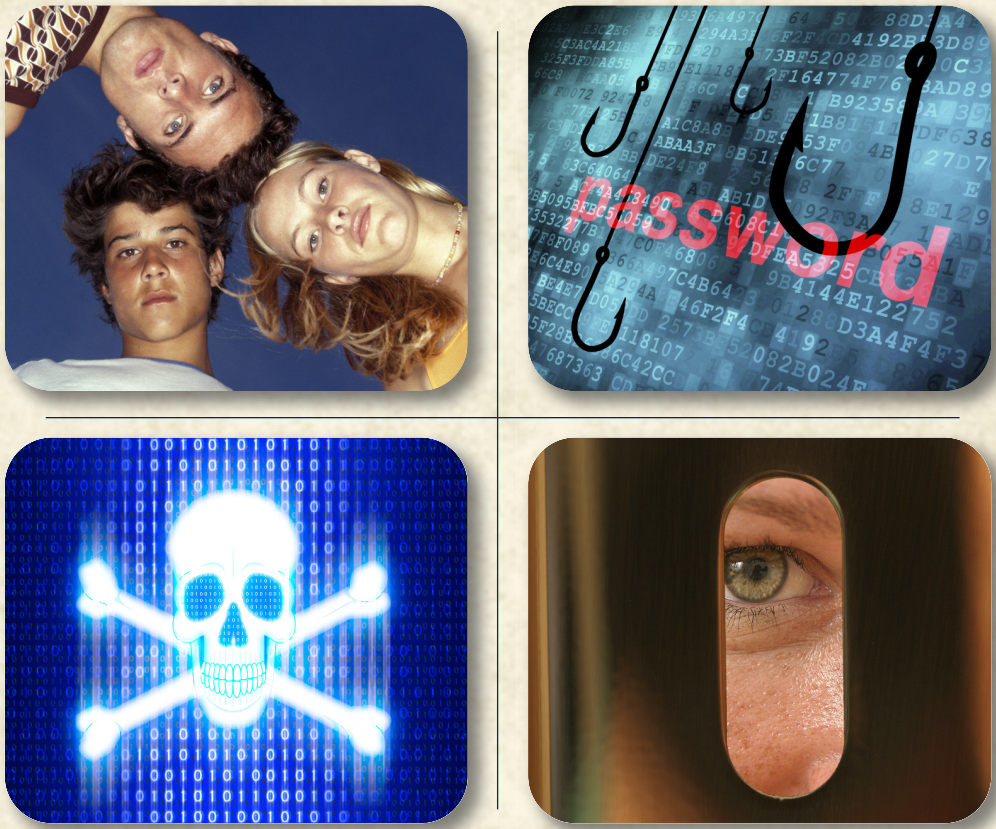The Document Based Question/essay prompt Cyberspace and the Law: What are Our Rights and Responsibilities? was prepared in 2013 and the resources have not been updated since that time. For more information about recent legal developments, consult national and state newspapers, legal databases, and your librarian.
Most people agree that modern society has benefited in countless ways from the development of the Internet and other digital technologies. Cyberspace is such a valuable part of our everyday lives that we seldom stop to think about how our constitutional rights are impacted by it. Nonetheless, we are at a defining moment in history and decisions made today concerning the application of our Federal and State constitutional rights to cyberspace will impact our lives and those of future generations for better or for worse.
This activity meets the following guidelines of New York State’s Common Core Social Studies Framework (2017):
Topic Background PDF
Below is a list of the 2013 resources in a searchable table. Search by theme of resource: cyberbullying, digital piracy, privacy in peril, or government surveillance.
United States v. Jones
565 U.S. 400 (2012) Read More ...
People v. Weaver
12 N.Y.3d 433 (2009) Evidence gathered by means of a GPS suppressed because the police had no search warrant for ...
Privacy, Law Enforcement, and National Security
The National Academies Press Chapter 9 of Engaging Privacy and Information Technology in a Digital Age focuses on electronic technology ...
From Jones to Drones: How to Define Fourth Amendment Doctrine for Searches in Public
Privacy Law Scholars Conference Scholars on this panel each had five minutes to present a constitutional test that would balance ...
Unwarranted! Privacy in a Technological Age
University of Southern California Gould School of Law Should law enforcement, without your knowledge and without a warrant, be able ...
Is GPS Tracking An ‘Unreasonable Search?
NPR Law enforcement says “give us the tools.” Privacy advocates argue that electronic surveillance threatens Fourth Amendment rights. Listen Now ...
The Roberson Privacy Controversy
Judicial Notice The Roberson Privacy Controversy tells the story of Abigail Roberson’s quest for justice as she sought protection of ...
Protecting Consumer Privacy in an Era of Rapid Change
The Federal Trade Commission The Federal Trade Commission’s final report setting forth best practices for businesses to protect the privacy ...
Expectations of Privacy in Social Media
Mississippi College Law Review Stephen Henderson examines expectations of privacy in social media such as weblogs (blogs), Facebook pages, and ...
Surveillance Society
National Center for Biotechnology Information David Shenk maintains that we are, without question, headed into a world in which—mostly by ...
I Know Who You Are and I Saw What You Did: Social Networks and the Death of Privacy
American Bar Association Jouranl ABA Journal web producer Lee Rawles talks with Lori Andrews, author of I Know Who You ...
Sounds of Science: Engaging Privacy and Information Technology in a Digital Age
The National Academies Press Explores how the threats to privacy are evolving, how privacy can be protected and how society ...
Sony BMG Music Entertainment et al. v. Tenenbaum
No. 10-1883 (1st Cir. 2011) Read More ...
The Future of Music in a Digital Age: The Ongoing Conflict Between Copyright Law and Peer-to-Peer Technology
Campbell Law Review This article explains the issues that have surfaced as a result of the development of new technology ...
Dimensions of P2P and Digital Piracy in a University Campus
Carnegie Mellon University Copyright industries are the main victims of illegal file sharing. Industry representatives claim that it costs billions ...
Statutory Damage Awards in Peer-to-Peer File Sharing Cases Involving Copyrighted Sound Recordings: Recent Legal Developments
Congressional Research Service While P2P file sharing technology could be used for legitimate purposes, P2P users most often copy and ...
International Online Piracy Panel
UCLA Burkle Center for International Relations Listen Now ...
Rutgers Trial: Dharun Ravi Sentenced to 30 Days in Jail
ABC News Read More ...
Constitutionality of Cyberbullying Laws: Keeping the Online Playground Safe for Both Teens and Free Speech
Vanderbilt Law Review In the absence of cyberbullying laws, victims can resort only to tort law and certain criminal laws ...
How Public Schools Can Constitutionally Halt Cyberbullying: A Model Cyberbullying Policy that Survives First Amendment, Fourth Amendment, and Due Process Challenges
Wake Forest Law Review Even where States have passed legislation dealing with cyberbullying, little direction is available on the type ...
Cyberbullying: Emerging Realities and Legal Challenges – Video
Missouri Law School The first panel speaks broadly about cyberbullying. The second speaker, whose presentation begins at 43:00, discusses controlling ...

